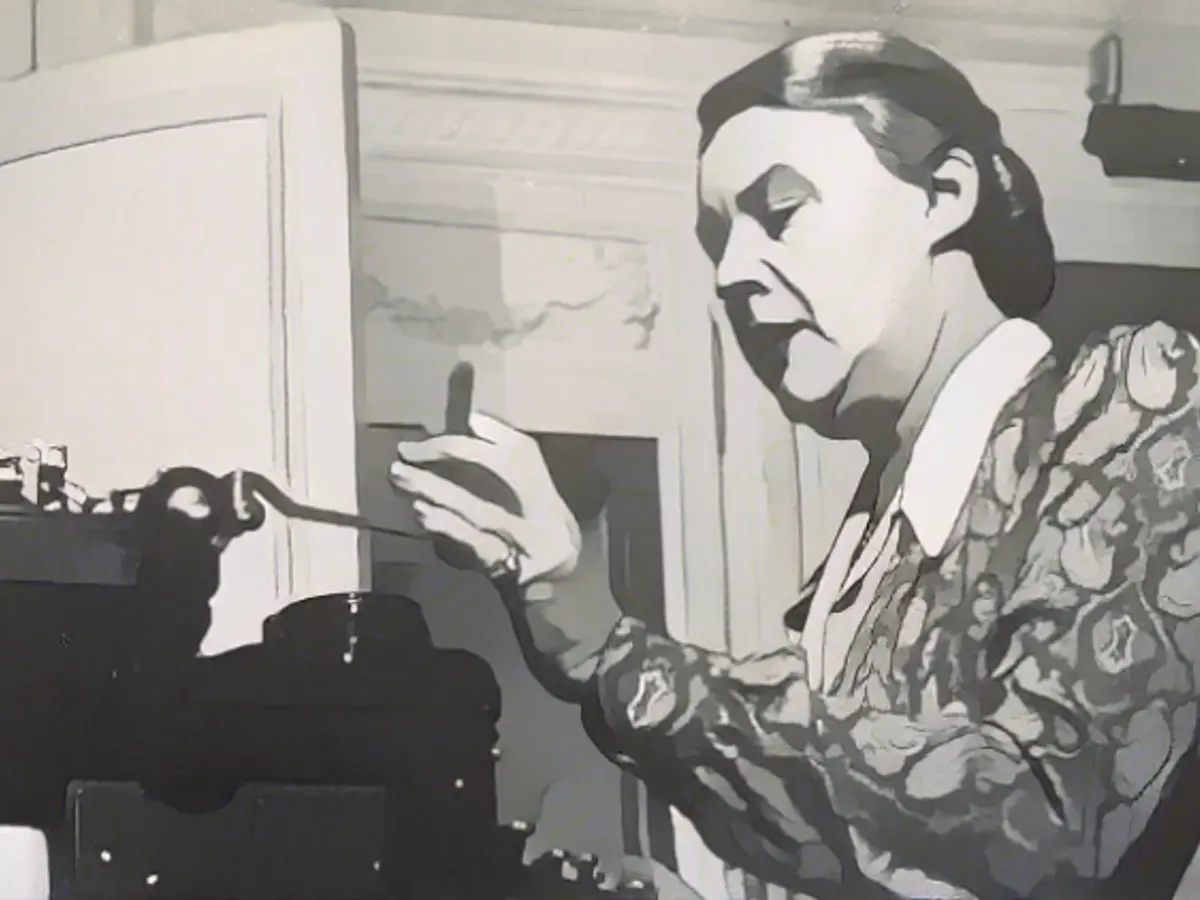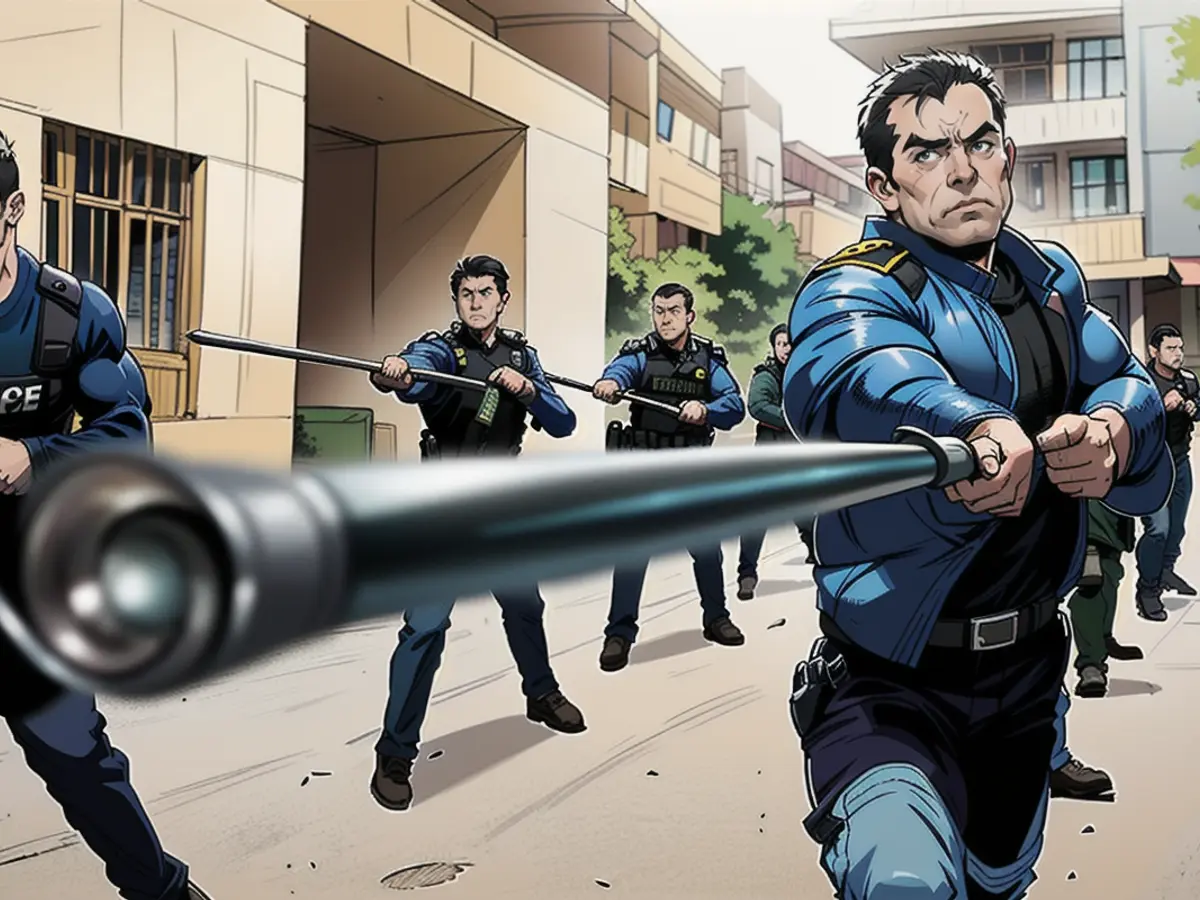The journalist who saw through Hitler and was still wrong
The US journalist Dorothy Thompson waited seven years before Hitler gave her an interview in 1931. After the publication of her report, he had her deported. Even though the book contains a blatant misjudgment of the self-proclaimed "Führer", it is a powerful work that has finally been published in full in German.
"It is shameful and provocative that such stupid women, whose brains can only consist of straw, have the right to speak out against a historical great like the Führer." This was Joseph Goebbels' misogynistic misjudgment of the American journalist Dorothy Thompson, which he recorded in his diary on April 5, 1942. His contempt was not directed solely at the reporter, but at democracy as a whole, the free press, which gave everyone - including women at last - the right to write whatever they wanted about whomever they wanted with impunity.
Thompson, who lived from 1893 to 1961, made extensive use of this freedom. And became an icon of journalism. In the early 1920s, she went to Europe and from 1925 onwards, she was the first woman to head the Berlin correspondent's office of two important US newspapers and interviewed political greats such as Gustav Stresemann, Kemal Atatürk and Leon Trotsky. Only Hitler did not want to. It was only after more than seven years of unsuccessful attempts - "he was haughty and kept his distance from all foreigners" - that the Austrian agreed. Thompson believed because he was about to take power and it was therefore time for him to "turn to the world".
At the end of 1931, the American met Hitler at the Kaiserhof Hotel in Berlin. She was one of the very few foreign reporters to conduct an interview with him. The report on her encounter appeared a few weeks later in "Cosmopolitan" and soon afterwards as the book "I saw Hitler!" (I met Hitler!). It contributed significantly to the Nazis deporting Thompson. The essay has now been published in full in German for the first time. It has been published by the Viennese publishing house "Das vergessene Buch", which, as its name suggests, brings works out of obscurity so that they are remembered.
Thompson's life mistake

Even the foreword, although short and concise, is an astute analysis of Hitler, his nature, his actions, his followers, the cult surrounding him and the state of Germany. To the cheers of "the patriotic, offended, petty-bourgeois mob", the American wrote, "the little man is riding the whirlwind of twelve years of mismanagement for which the whole world is responsible". Even then, she was not only blaming the Germans for the rise of the National Socialists, but also the victorious opponents of the Reich in the First World War, who occupied the Ruhr in 1923, insisted on full reparations payments despite inflation and economic crisis and thus contributed to the weakening of the young democracy of the Weimar Republic.
Thompson clearly stated Hitler's goal: "The implementation of a dictatorship and the establishment of a new - or is it the old? - warlike Germany." Between facts, astute assessments and warnings, her essay repeatedly flashes bitter irony that betrays a certain uncertainty. The author took Hitler and his work seriously and also sensed the danger he posed, or rather could pose. Like so many other contemporaries, Thompson believed that his opponents in politics and business would prevent the self-proclaimed "Führer" from going to war and would protect the Jews.
The very first paragraph after the preface contains an error that was to accompany Thompson for the rest of her life. The reporter was "firmly convinced that she was meeting the future dictator of Germany. Not fifty seconds later, I was quite sure that this was not the case. It took me about that long to appreciate the astonishing insignificance of this man who held the world in suspense." At one point in the text, she called Hitler a "would-be dictator". On the other hand, she credited him with "persuading a sovereign people to vote away their own rights".
"Thompson's legendary misjudgement is actually a misunderstood misunderstanding", says Oliver Lubrich, Professor of German Studies at the University of Bern, in his afterword, which is well worth reading. Either way, the essay is an impressive historical document, if only because Thompson gave her direct impression of Hitler's character. "He is the embodiment of the little man. His movements are awkward, almost undignified and extremely unwarlike. There is no trace of inner conflict or self-discipline in his face."
Ridiculous and dangerous
In terms of content, Hitler was blank. He did not answer questions about plans and intentions so that his "enemies" could not "steal" his program, as he told her. All the more astonishing is Thompson's gift for revealing the power mechanisms of the would-be dictator, the sophistication with which he addressed "the disorganized, confused, unhappy Germans": "Little people. Weighed down by a feeling of inferiority. Hitler also bears the brunt of it." Looking at the foreign policy successes of the Weimar Republic, the correspondent noted. "Hitler and his people even made victories sound like humiliations."
The murderous NSDAP had long since discovered the power of emotions as a means of politics, propaganda and incitement, which was particularly felt by the Jews. The reporter stated the following about Hitler: "Above all, he appealed to invisible realities, to emotions and faith, not to reason." Elsewhere, she wrote: "Reason has never swept the world off its feet, and Hitler, the gifted agitator, knows that. Self-interest, on the other hand, does, no matter how ridiculous it may seem."
Today, we would say that facts are countered with fake news and fears of doom with the feelings of a supposedly homogeneous mass of people; irrationality and inconsistency are also hallmarks of politics on the fringes. Not the only parallels to the present. "There is a radicalization in Germany, on the right as well as on the left," noted Thompson. Hitler was laughed at in the same way that Reichsbürger are laughed at today. "He has no weapons to speak of: a few pistols, some loaded with water or detonators; a few rifles, some brass knuckles and dagger rings, a few rusty steel helmets and brown shirts for uniforms." Hitler's movement thrived on anti-Americanism. "Contempt for the Americans, these dollar chasers, money shovelers, profiteers."
Nevertheless, the difference is huge: unlike Weimar Germany, the Federal Republic is a consolidated and defensible democracy in which only a minority longs for "overthrow" or "Day X". Nevertheless, there are lessons to be learned from Thompson and her book. Because it shows: No one knows political developments, no matter how rationally and cleverly one is able to grasp the present. In this respect, "I met Hitler!" is also a warning to today's generations.
Lesen Sie auch:
Source: www.ntv.de








